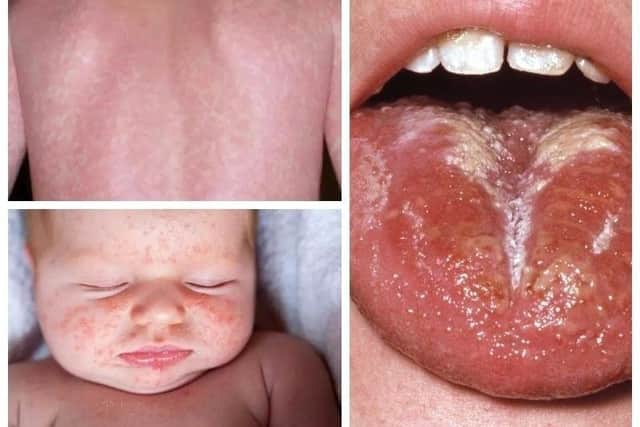Strep A: Severe outcomes 'very very rare' says Bedfordshire and Milton Keynes health boss
and live on Freeview channel 276
Parents and carers need to be aware of strep A symptoms, but severe outcomes are “really very, very, rare” says the director of public health.
Wednesday’s Health and Wellbeing Board (December 7) heard that information on strep A in the media can be “quite confusing” for people.
Advertisement
Hide AdAdvertisement
Hide AdVicky Head, director of public health, Bedford Borough, Central Bedfordshire & Milton Keynes, said: “It’s important people understand this bacteria group A Streptococcus (group A strep) is really common.


“Lots of us carry it in our throats and on our skin all the time, and it doesn’t necessarily cause any kind of disease, let alone a severe disease. There is concern at the moment because we’re seeing an unusually high number of cases. And sadly, a small number of deaths have been reported, which is very alarming for people.
“So group A strep can cause a sore throat, not just a kind of a cold-like sore throat, but a really properly sore throat when you can’t swallow. It can cause scarlet fever which has a characteristic rash. And in very rare cases it can get into the bloodstream, which is when we call it invasive group A strep.
“So the bacteria is in a part of the body where it shouldn’t really be able to get to and when it does get there it can have a very severe outcome. Unfortunately it can sometimes be fatal, and it is a small increase in these severe cases that is causing the current concern.
Advertisement
Hide AdAdvertisement
Hide AdMs Head emphasised that severe outcomes from strep A are “really very, very, rare”, and it’s not something that people need to be overly worried about.
“There’s no evidence that there’s any kind of change in the bacteria; there’s no evidence of a new strain,” she said.
“The most likely explanation is that there is just a lot of the bacteria circulating at the moment. We’ve all been exposed to fewer bugs over the last couple of years, so there are more people in the community that are susceptible to infection at the moment.
“And when we have lots of infections and lots of cases we do start to see those very rare outcomes presented in a way that feels a bit different.
Advertisement
Hide AdAdvertisement
Hide Ad“I guess for parents and carers the anxiety is when they should seek advice if they have a poorly child at home, and it’s difficult because we also know that there are a lot of viruses circulating that can cause sore throats and colds.
“So look out for a very sore throat, and if a child can’t eat or drink because they are not able to swallow because of the pain, that would be an indication to call a GP or 111.
“Then if they see this very characteristic rash, so it’s a kind of fine sandpaper like feeling rash, it can present as pinkish or reddish on white skin, on brown or black skin it’s harder to see it but that characteristic feel is still there. In those situations antibiotics would be likely to be suggested and so getting in touch with the GP or 111 is important.
“Also for parents that message that they know their children and so if it feels like their child is becoming seriously unwell then absolutely get in contact with the health system.
Advertisement
Hide AdAdvertisement
Hide Ad“In terms of the really severe presentation, the invasive symptoms to look out for, it’s what we would consider the usual sepsis-like symptoms.
“If a child is having difficulty breathing, the child’s skin, tongue or lips are blue, if the child is floppy, they’re not responding as they normally would or they are difficult to wake up, those might be indicative of an invasive infection. That will be when to call 999 or to go to A&E,” she said.
“Obviously there’s quite a lot of concern in schools at the moment and we’re getting calls from schools who have cases or are worried about outbreaks in school.
“We’re working with them, and we’re working closely with the UK HSA who are the lead agency for the response just to make sure there is clear advice going to schools about what they need to do if they have a case or an outbreak.
Advertisement
Hide AdAdvertisement
Hide Ad“And we’re making sure schools have advice that they can pass on to families on what they need to be looking out for.
“We can all be doing things to help to protect against this sort of bacteria, and also to protect against flu and Covid as well,” she said. “Good hand and respiratory hygiene are still very important, so washing your hands and using tissues to catch coughs and sneezes. But staying away from work or school if you’re unwell is really important."